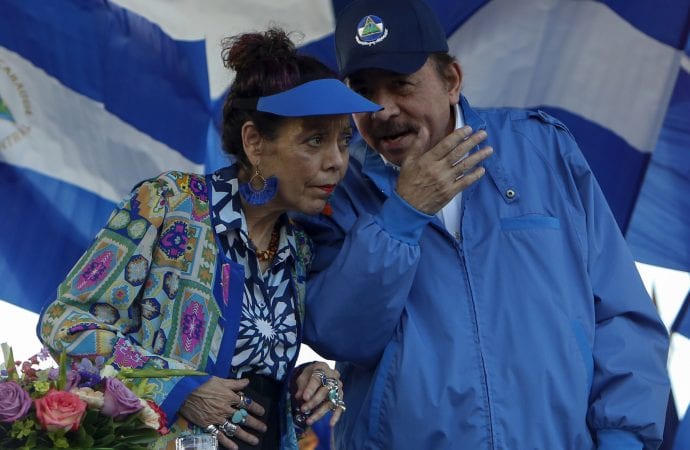A senior advisor to the U.S. State Department is calling on the Catholic bishops of Nicaragua to find a way to once again play a part in the ongoing talks to help the Central American country find a way out of its current political and economic crisis.
“I can’t speak highly enough for the role of the Catholic bishops in Nicaragua and the Vatican, the nuncio, as well,” said Ambassador Todd Robinson, Senior Adviser for Central America of the U.S State Department.
Polish Archbishop Waldemar Stanislaw Sommertan is the apostolic nuncio, or papal representative, to the country.
The Church, Robinson said, has been clear in their commitment to reaching a peaceful political settlement in Nicaragua, working not only with the opposition but with all the involved parties.
The situation in the country began to unravel last April, when a series of student-led protests saw hundreds killed in clashes with security forces and pro-government militias.
Despite the attempts from President Daniel Ortega to portray the crisis as a U.S.-led revolt, according to Robinson “we have to understand the point that this is not the United States versus Nicaragua.”
In fact, most of the students were former members of Ortega’s Sandinista Party who took to the streets in solidarity with the elderly, who were protesting a social security reform that would have heavily affected them.
Robinson’s comments came on Thursday during a teleconference that included Crux. According to him, the U.S. administration “applauds” the Catholic bishops for their stance since the crisis began, including the fact that they opened churches to serve as shelters and hospitals during the protests.
“We hope that [the bishops] will find a mechanism to join the opposition and others to get back to the negotiating table because we think they have a strong and important role to play,” he said.
Robinson serves as Senior Adviser for Central America in the Bureau of Western Hemisphere Affairs in Washington, D.C. Before this, he was appointed Charge d’affaires at the U.S. embassy in Caracas, Venezuela, but he was only there from December 18, 2017 to May 22, 2018, when he was expelled by President Nicolas Maduro. During Thursday’s briefing, he refused to answer questions regarding the ongoing crisis in Venezuela.
The ambassador said that the U.S. is working with many countries in the West and also Asia to support an international approach that would help the people of Nicaragua find a “peaceful, democratic and comprehensive solution to this current crisis.”
Much like the bishops and the opposition, the U.S. will continue to push for early, free and fair elections and full respect for human rights, as the U.S. government sees this as the only viable path to democracy and sustainable economic development in Nicaragua.
“Yet the Ortega regime continues to choose repression and violence over human rights and the democratic yearnings of the Nicaraguan people,” Robinson said.
According to the ambassador, regardless of the involvement of the international community, the ultimate resolution of the crisis lies with the people of Nicaragua and their push for credible efforts to develop a national dialogue.
“A lasting solution to the crisis can only be achieved by political action that involves all stakeholders in Nicaraguan society,” he said. Nevertheless, he added the United States will continue to use all the diplomatic and economic tools at its disposal to promote and support Nicaragua’s rule of law and democratic reform.
The Trump administration will take its lead from the “Nicaraguan opposition and the people who are closely involved in the negotiations.”
According to these people, there are several things the Ortega regime can do to show that they’re serious about negotiations this time around - unlike a failed attempt that took place last year, at the diocesan seminary in Managua.
Among these demands is the release of political prisoners. There are currently between 800 and 1,000 people being held without trial, having no contact with their families, and with no access to medical care. Moreover, there are reports many are being physically abused by their guards.
Ortega released around 100 prisoners last week, but put them under house arrest. “That is simply not enough,” Robinson said.
“We are urging the Ortega regime to negotiate in good faith and to take concrete actions now to restore democracy by ceasing its repression, releasing arbitrarily detained persons, and agreeing to hold early free and fair elections,” he continued. “And we’re going to push the idea that in those elections we look for new leaders in Nicaragua. Leaders that don’t include Ortega and [Vice-president Rosario] Murillo.”
In recent months the Trump administration has imposed several sanctions against Nicaragua, both political - such as revoking visas for members of the Ortega government - and economic. According to Robinson, the U.S. will continue with the sanction regime if it sees no real intent on the part of Ortega to come to a negotiated end to the crisis.

